Brain Building Blogs

Social Customs and Spirituality of Indigenous Games
Beginning in early childhood and kindergarten, children are taught important social beliefs and attitudes that are reflected in how traditional games are learned and played.

Connectedness During COVID-19
Social connectedness has been and continues to be a key factor in promoting positive mental health and well-being. By promoting quality interactions with our children they will continue to feel valued, loved, and cared for and the connection will continue to grow.

How to Build a Strong Brain
The construction of a house always begins with the laying of a foundation. The same is true when building a strong brain.

Emotional Literacy
Is it true that happy people live longer? Read about emotional literacy and learn how it impacts our mental wellbeing and physical health.

Why Play Outside?!
Children’s time outside is diminishing as our society moves towards a more sedentary lifestyle. Take a look at six great reason to get outside and play.
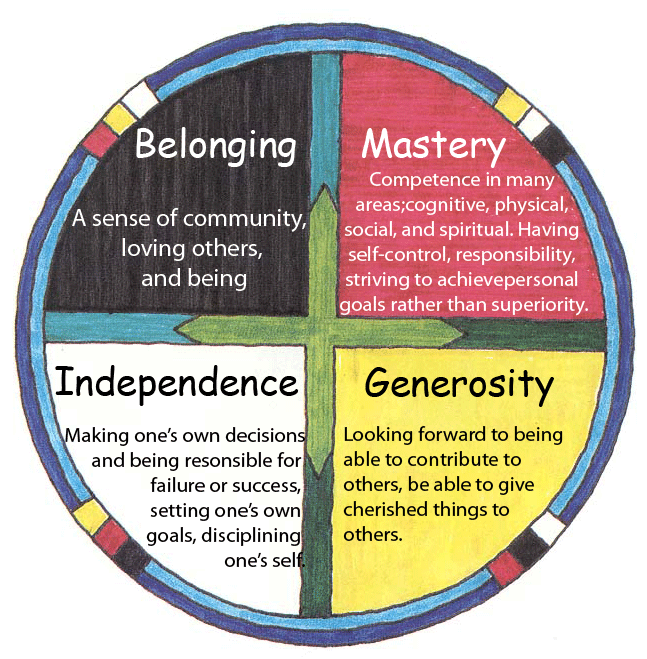

Running Games
The “Run and Scream” is a Blackfoot game to develop and maintain endurance of running.

Indigenous Games
Traditionally, playing Indigenous games and activities were a daily occurrence and were embedded into a natural way of life. Today, we have a reclamation of the traditional Indigenous games and activities to embrace the cultural activities of our Indigenous forefathers of Southern Alberta.

Supportive Systems & Communities
“What’s wrong with you” needs to be removed - with the explanation of “what’s happened to you” .
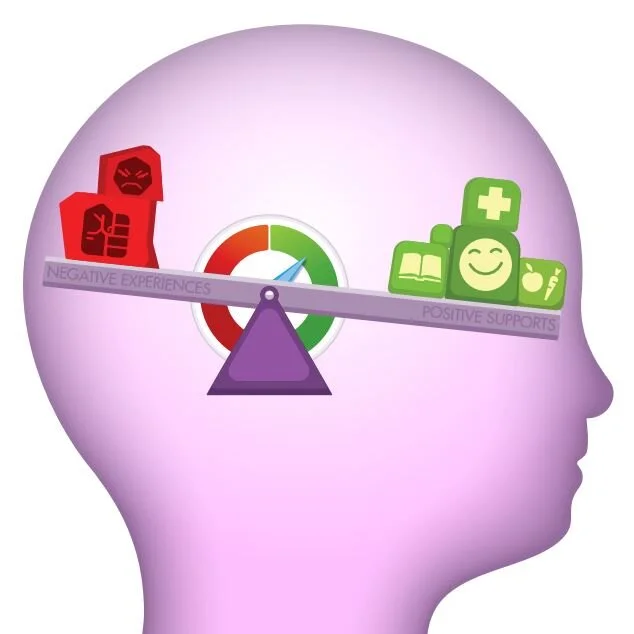
The Resilience Scale
Resilience is defined by the interrelationship between our genes and life experiences. A lot can be done by parents, caregivers, teachers, and coaches, to positively influence and strengthen a child’s resiliency so that they are better equipped for success throughout their lifetime.

Serve and Return
Serve and return is a very easy concept to keep in the back of our minds as we engage with children and infants throughout our lifetimes.
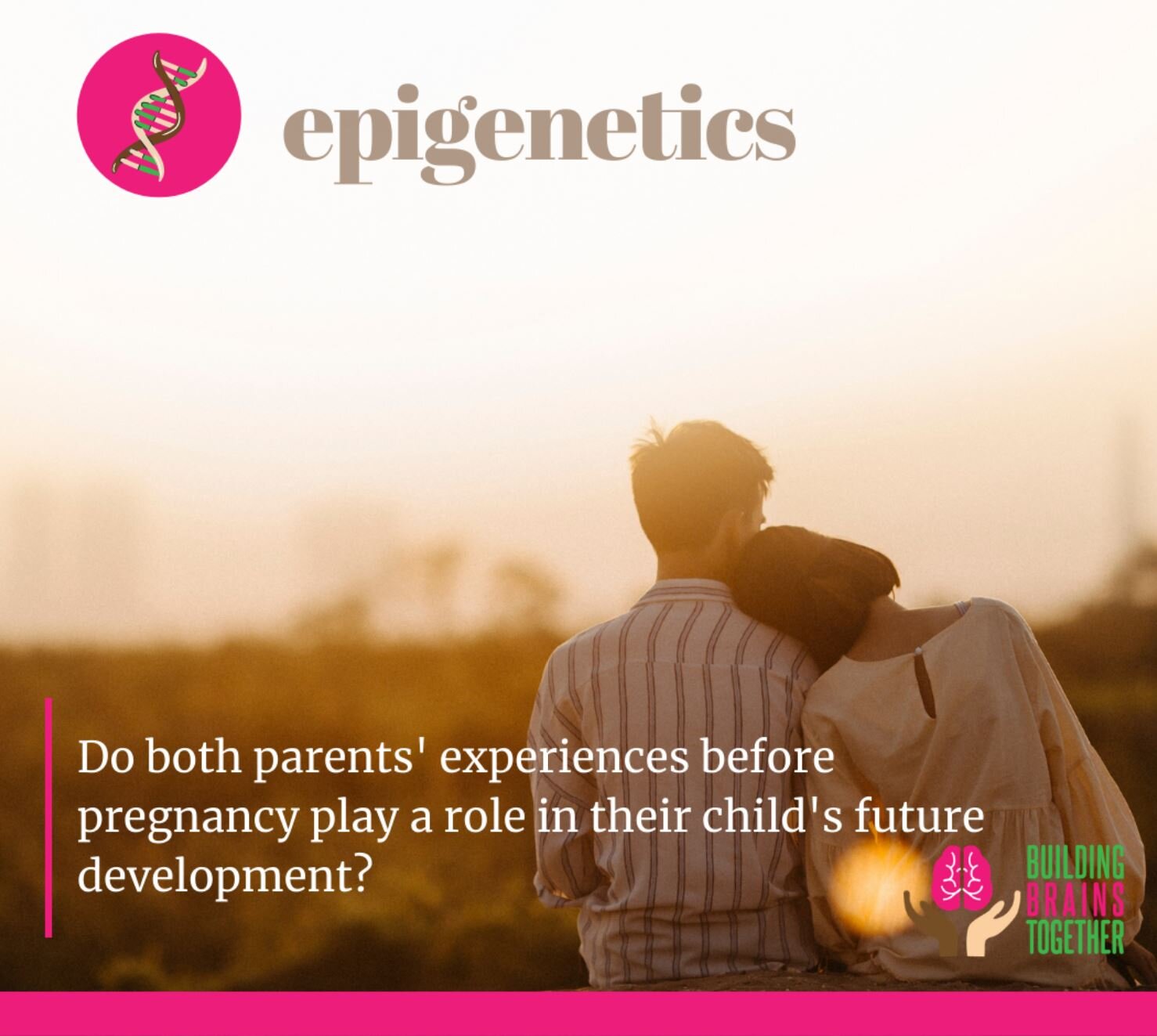
Transgenerational Epigenetics
Experiences gone through by both a mother and father even before pregnancy, might also be playing a role in that child’s future development.

Benefits of Block Play
Did you know six standard LEGO bricks can be combined in more than 915 million ways? Find out more about the benefits of block play.

Why Build Executive Functions?
Executive function skill level has been found to predict school success, benefit behavioural control, overall health, and enable individuals to make greater contributions to the work force.

Play Summit 2021
Building Brains Together’s Dr. Robbin Gibb is the keynote speaker at this year’s PLAY SUMMIT. Join us at PLAY SUMMIT 2021 to learn from community organizations and researchers about why play holds so much value in healthy child development and how play creates resilient adults.
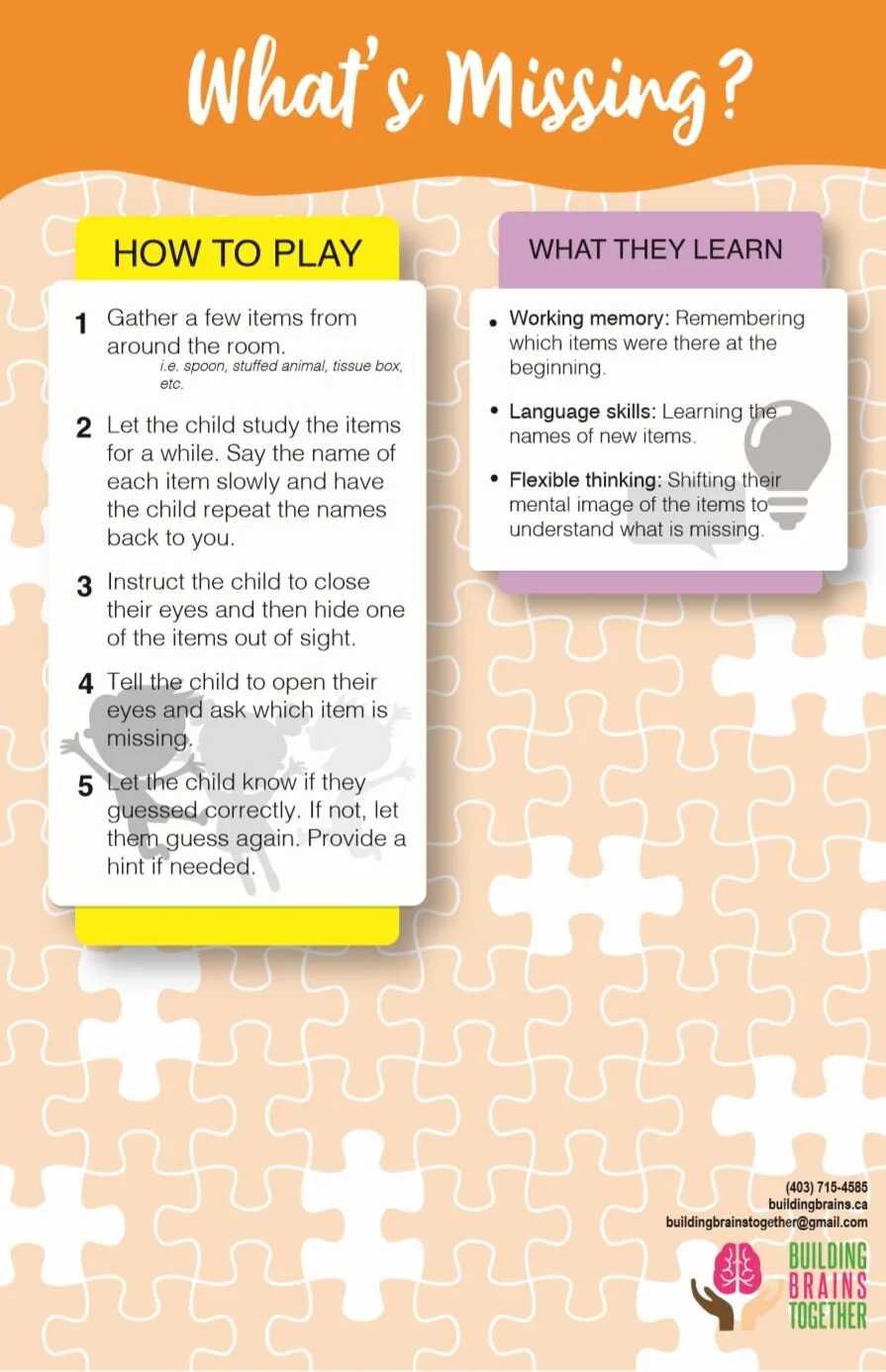
What’s Missing?
What’s Missing helps children build working memory, language skills, and ability to think flexibly.

Understanding Stress
When stress is temporary and buffered by supportive relationships, it can be helpful, build resilience, and increase performance.
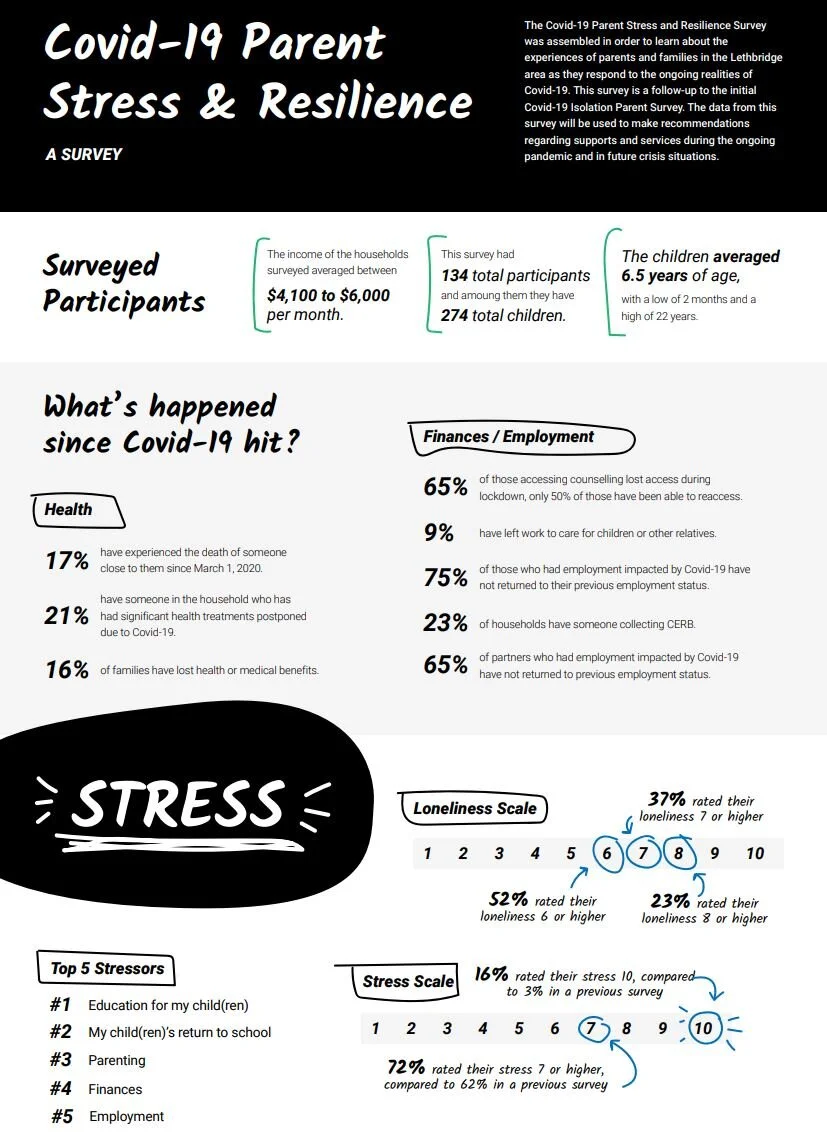
COVID-19 Parent Stress & Resilience Survey
The Covid-19 Parent Stress and Resilience Survey was assembled to learn about the experiences of parents and families in the Lethbridge area as they respond to the ongoing realities of Covid-19.

Importance of Positive Experiences
Children’s early experiences – the bonds they form with their parents and their first experiences – deeply affect their future physical, cognitive, emotional and social development.

Protective Factors
We all want our families and children to have what they need to thrive. How can we take advantage of our unique strengths as a parent and ensure we have the skills and supports we need so our child – and our family as a whole – is safe, secure and happy?